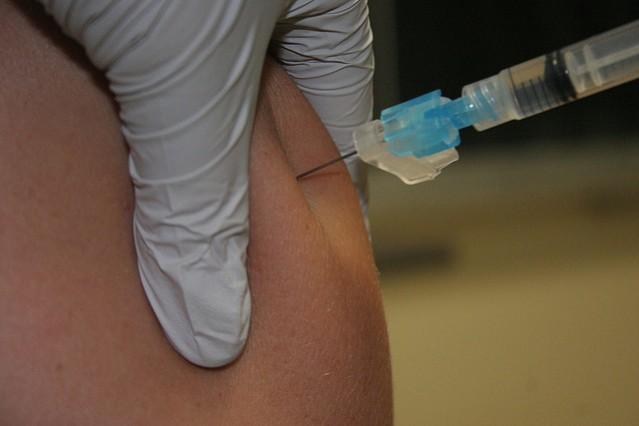
Childhood vaccines do not have any role in Autism Spectrum Disorder (ASD), a developmental disorder that leads to significant social, communication and behavioral changes, researchers reveal.
Concern about safety of vaccines first emerged in 1998, when a British researcher named Andrew Wakefield linked the measles, mumps and rubella (MMR) vaccine to the development of autism in children. However, reaching such a conclusion, by only examining a small group of 12 children, without any controls and depending on parental beliefs and recall, invited criticism from different parts of the world. Later, a group of journalists provided solid evidence to show that the data had been falsified and manipulated. Though several studies have refuted the claims and re-confirmed safety of the vaccine, rates of children being vaccinated against the diseases have declined considerably.
Babies should receive nearly 14 vaccines before reaching 15 months. However, last year, an investigation conducted by researchers from CDC found that a significant number of parents, concerned about the safety, were skipping or delaying the vaccines.
In the new study, a team of researchers from the University of Sydney in Australia looked at two sets of children - 1.25 million children as a part of five cohort studies and another set of 9,920 children, part of five case-control studies in the past. These studies explored safety of certain vaccines commonly recommended in childhood, including MMR, diphtheria, tetanus and whooping cough vaccines.
However, at the end, Guy Eslick and colleagues couldn't find any proper evidence to show that these vaccines posed any risk to the children. "Our extensive international review found childhood vaccinations including measles, mumps, rubella, diphtheria, tetanus and whooping cough are not associated with the development of autism or an autism-spectrum disorder," Eslick, said in a news release.
He warned that the tendency to skip vaccines can do more harm than good.
"This has in recent times become a major public health issue with vaccine-preventable diseases rapidly increasing in the community due to the fear of a 'link' between vaccinations and autism," he explained.
"This is especially concerning given the fact that there have been 11 measles outbreaks in the US since 2000, and NSW also saw a spike in measles infections from early 2012 to late 2012."
The study has been reported in the journal Vaccine.








